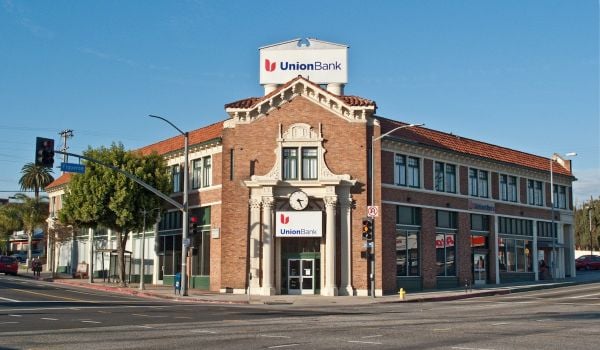Pamela Jolly’s parents paid thousands of dollars a year to send her to a private, Philadelphia-area Catholic school where, they hoped, she could spend her formative years not being defined by her race. But one day in the fourth grade, Jolly remembers, a boy named Tommy called her the N-word. Not knowing what it meant, she went home that day and called her father the N-word.
“He got very upset,” Jolly says.
Her mother took a different tack. “She had a unique childhood as well, being an Army brat born in Japan and raised in Philadelphia,” Jolly recalls. “She said, ‘well praise be to God here’s some [African-American history] flash cards. Babygirl, you’re black.’”
Jolly went on to read and learn more about that history and, as she puts it, “the things [African-Americans] had done and the ways in which they had to do what they did to be able to move forward.” After attending a nearly all-white grade school and high school, she went to historically black Hampton University in Virginia. From there, she went on to work in commercial banking and then private equity, and eventually founded her own strategic advisory firm, Torch Enterprises, which primarily helps black-owned businesses raise capital.
As time has gone by, the shared experiences and shared roots of black business owners in America have continued to shape Jolly’s work. “If you want to speak about African-Americans, they are the only people in America who were capital before they earned capital,” she says. “We came over here on the balance sheet. Aside from the land, we were the most valuable asset.”
A new report on wealth and black business ownership from the Association for Enterprise Opportunity (AEO), a national membership organization focused on microenterprises, examines the successes of and the barriers that the estimated 2.58 million black business owners face in the U.S. These businesses provide 3.56 million jobs and generate $150 billion in annual revenue. Black business owners have 12 times the wealth of black non-business owners, the report found, and it’s not because they started out wealthier; according to AEO, business owners tend to start out less wealthy, while growing wealth faster than non-business owners.
AEO points to one particular challenge too: Even while black individuals are more likely to start a business than the general population, their businesses fail at much higher rates.
“It’s the interplay of the wealth gap, capital gap and trust gap that’s keeping black-owned businesses from reaching their potential,” says AEO CEO Connie Evans.
The racial wealth gap is well-documented. Nationally, the median net worth of white households is about 13 times that of black households. Local disparities can often be even more stark. In Boston, median net worth of black households is just $8. In a country still largely segregated by race, the wealth gap makes it nearly impossible to raise startup capital from friends and family if you’re black.

Pamela Jolly
The credit gap is also well-documented. Minority-owned businesses are more likely to be declined a loan, receive smaller loan amounts, and often pay higher interest rates than white-owned businesses.
“Chances are if you’re a mayor or council member and you’ve tried to maybe throw money at [the wealth gap or credit gap] … sometimes it doesn’t work or isn’t getting the impact that you expected,” says Evans. “What we’ve found is part of the reason you haven’t had impact is because people have not paid attention to what we’ve called the trust gap.”
The trust gap manifests in a few ways, Evans says. For one, because of implicit and explicit bias that black business owners have experienced, it’s sometimes kept them from putting themselves in positions where they can even be turned down for a loan. As part of its research, AEO conducted a survey of both black and white business owners, asking them about their feelings and experiences around raising capital. “[Black business owners] don’t go to financial institutions and banks to actually seek capital anymore, because they already feel they’re going to be turned down,” says Evans.
Second, Evans says, “because of history, lack of resources or shortage of capital, black households also tend to be less sharing, less trusting and hold their cards closer to their vests,” Evans says. In other words, black business owners are often less likely to participate in networks or find and enter into strategic partnerships with other businesses, which might preclude them from accessing new markets or preclude them from being able to team up with others to pursue contracts.
“If you haven’t been raised with an experience of successfully navigating agreements and deals with people who don’t look like you, with people who have greater authority over you,” Jolly says, “quite naturally you might avoid it, you might feel suspect or suspicious of it.”
Looking back at history, suspicion is warranted. When threatened by the success of black businesses, especially any ambition to go out and venture beyond black customers, white business leaders have teamed up with white politicians to use regulations, zoning, infrastructure projects or sometimes straight-up arson to bulldoze or burn thriving black business districts to the ground.
Fostering trust has become part of Jolly’s life’s work. After getting a graduate degree from Wharton, she obtained a master’s in theology and then a doctorate of education, a journey in which she explored the relationships between black households and wealth. That research shaped her work at Torch Enterprises, where she uses history and narrative to bridge the gulf between black business owners and their potential bankers, investors and business partners. Her process is codified in her book, “The Narrow Road.”
There isn’t any one solution that AEO proposes in its report, which is intended to help policymakers, program designers and philanthropic organizations to shift their perspective to take into account the interplay of the wealth gap, credit gap and trust gap that black business owners experience. One recommendation: Reconsider what makes a “successful business.”
Job creation is certainly part of the picture — especially when you consider the black businesses located in majority-black neighborhoods. But the 96 percent of black businesses are single-person proprietorships; they have no employees. Of the 4 percent that do, they average nine employees. By designing policies, services, funding supports and programs to assist 15 percent of black non-employer firms to hire one more person, and by assisting employer firms to hire two more people, approximately one in three of the current unemployed black labor force in America could be employed, the report estimates.
But there’s more to it than job creation.
“Some people don’t consider it a successful business unless the business has created 500 jobs, but that’s just not the metric of success for everyone,” Evans says. “Look at the business owner who has been in a carry-out restaurant maybe for the past 20 years. I don’t understand how anyone can say that’s not a successful business. They’ve been open for 20 years, they’re providing jobs and are a resource in the community. But what is it that has kept that business owner from opening up a larger full service sit-down restaurant.”
Ultimately it’s about closing the racial wealth gap. It’s about understanding what’s holding back existing black businesses from the next level up in growth. “When we look at building wealth for black households or black communities, business ownership is a key strategy,” Evans says.
“My ultimate desired outcome is legacy wealth creation, creating wealth that can live on and have an impact for generations,” Jolly adds. “But I don’t want one-off solutions. I want aggregation. If we truly want to foster growth for black-owned businesses, we have to standardize the way in which we help them, support them, invest in them and fund them.”
The Equity Factor is made possible with the support of the Surdna Foundation.

Oscar is Next City's senior economic justice correspondent. He previously served as Next City’s editor from 2018-2019, and was a Next City Equitable Cities Fellow from 2015-2016. Since 2011, Oscar has covered community development finance, community banking, impact investing, economic development, housing and more for media outlets such as Shelterforce, B Magazine, Impact Alpha and Fast Company.
Follow Oscar .(JavaScript must be enabled to view this email address)

















